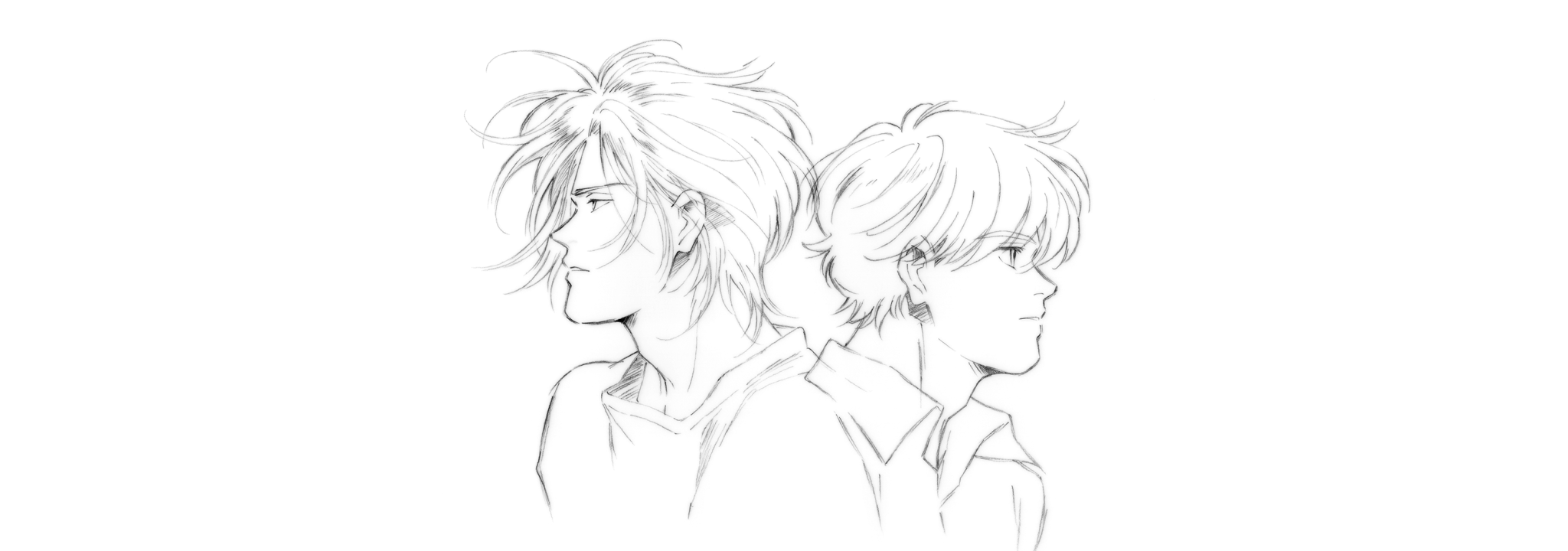The Fujimoto Yukari Interview
In response to a recent ask I got about Yoshida Akimi’s interviews, I thought I’d dedicate a post to one interview in particular and that’s the Fujimoto Yukari interview published in The Soul of Shoujo Manga (少女まんが魂) in 2000. Almost all the buzzworthy stuff Yoshida said about Banana Fish are from this one. @pekorosu translated part of this 20-page interview and posted a summary here. I found scans of two excerpts on Twitter user @Matryoshka3’s account (1, 2). I’m reposting the images here because tweets tend to disappear after a while, and I want this one to remain for archival purposes and because fans eventually hear about this interview and want to find out more.
This part was recently translated by @pekorosu here. I think the keyword that causes confusion here is きっかけ (“kikkake”) which can be interpreted to mean “reason”, “occasion”, “motive”, “excuse”, etc. They’re all similar in meaning but at the same time slightly different. So Yoshida’s line becomes “They would have had sex, but there just wasn’t any ‘kikkake’ so they ended up not doing it.”
I vaguely remember a Twitter user (enta_jinnai, I think?) commenting on this part of the interview and saying something like “Ash and Eiji never got to have sex because they simply never got around to it. But if they had the chance (maybe more time or more favorable circumstances), they would have eventually done it.” I might be wrong though. Unfortunately, the original tweet is no longer available, but maybe it’s being reposted somewhere and fans who read it get curious about what Yoshida actually said in the interview. But as @pekorosu mentioned, Yoshida wasn’t specifically talking about Banana Fish here and I only just realized that because I never read the part of the interview that led up to this point.
We all know how heavily Yoshida was influenced by Midnight Cowboy from various interviews and what she wanted to explore in her works was the connection between two characters that was on a more spiritual level, rather than romantic or sexual. I think what she’s saying here is that she wanted to portray an aspect of the relationship between her characters that didn’t necessarily focus on sex, but also didn’t exclude the possibility of it altogether.
Here’s another part of the interview that, uhh, gets a reaction from fans every time and, unlike the previous one, it directly mentions Ash and Eiji. @brickme posted a partial translation here. When I read this part of the interview (or rather its translation), I had no idea about the myth that a unicorn, a wild and untamed creature, could only be captured by a virgin. Now that I’ve read a little bit about it, this interview makes much more sense. Ash, who’s depicted as a wild beast more than once in the story, is drawn to Eiji’s innocence. I really like how Yoshida’s drawn a parallel between this myth and the pure, transcendent bond between the two.
I’ll roughly translate the remaining part that’s included in the scan but not in the translation.
Fujimoto: I see. So Ash is the unicorn?
Yoshida: That’s why he’ll allow only Eiji to touch him.
Fujimoto: He has a pure and innocent nature, right?
Yoshida: Exactly. And people like that are the most dangerous and troublesome ones, aren’t they?
Please correct me if there are any errors in my translation. The word Fujimoto uses when referring to Eiji is 無垢 (“muku”) and, again, it has many meanings: pure, innocent, unspoiled, immaculate, etc. But it literally means “without dirt.” And Yoshida, in turn, says that the pure and innocent nature of Eiji makes him dangerous and also a nuisance, which is interesting to hear, although I understand where she’s coming from.
Come to think of it, it could be said that it was Eiji who brought Ash’s demise. Eiji himself believes so in Garden of Light. Ash was drawn to Eiji’s innocence like moth to flame and although he tried to distance himself from Eiji many times, in the end, it was Eiji’s letter that distracted Ash enough to get stabbed and killed. This, of course, doesn’t mean that they would wish never to have met each other. Ash was happiest when he was with Eiji, as he says to Blanca, and Eiji was grateful that he could spend time with Ash however briefly, as he says to Sing.
